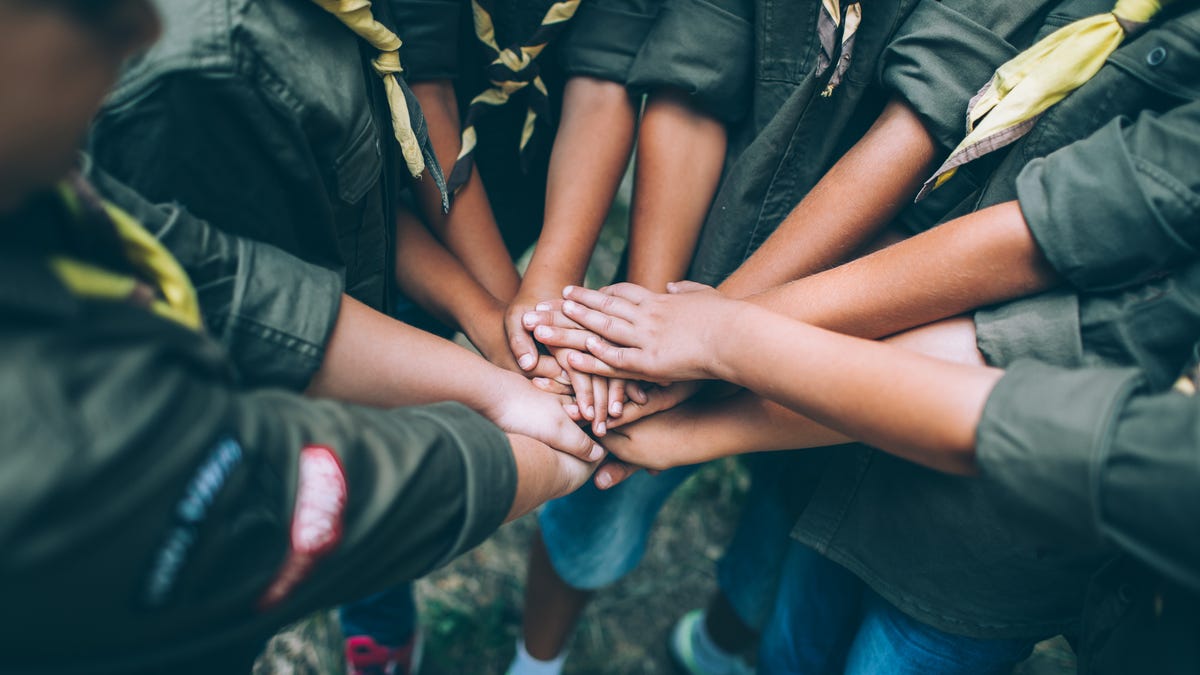Stacy McNeiland
| Guest columnist

Writing an op-ed to The Oklahoman? Here’s a step-by-step guide
An op-ed isn’t just an opinion—it’s a chance to shape conversations. Here’s a step-by-step guide
With summer winding down and a new school year beginning, today’s young people have an abundance of options for extracurricular activities and opportunities for connection. From sports to STEAM (science, technology, engineering, arts and mathematics), kids can choose from options that align with their interests and help foster happier, healthier childhoods.
But choosing the right activities for kids matters, particularly for young girls.
Recent research from the Centers for Disease Control and Prevention and Girl Scouts of the USA indicates an alarming mental health crisis among girls. The report shows that nearly 70% of girls ages 5 through 13 are experiencing loneliness, which can affect their mental health. Despite constant digital connection, girls are reporting significant levels of sadness, loneliness and hopelessness.
To meet this challenge, organizations and indeed parents across the globe are seeking opportunities to foster connection in the digital age, cutting through the clutter while still capturing the imaginations of girls who need engagement now more than ever.
At Girl Scouts, it might surprise you to learn that activities and focus can vary widely from troop to troop, and the most successful and longest-lasting troops tend to be girl-led. So what can we learn from that, and why does it matter as we try to address a mental health crisis among our girls?
Put simply: Cookie cutter programs aren’t cutting it, and if we listen to the girls, they’ll tell us exactly what they need.
As we kick a “one size fits all” approach to the curb, we find that old mantras fit just fine in the modern world: come as you are, be who you are and find your people wherever you are, whether that’s as a homemaker or in leadership positions in Fortune 500 companies, Congress and global nonprofits.
These lessons don’t have to be limited to girls in green. Parents and guardians can support their own daughters through intentional development in key areas:
Sense of self: Girls need to build confidence in their abilities and form positive identities — an important aspect of good mental health. A strong sense of self enables girls to navigate life’s challenges and make choices aligned with their values.
Healthy relationships: It’s critical for young women to learn how to develop healthy relationships with peers and adults. Summer camps and after-school activities provide an opportunity for human interaction. In today’s digital world, making genuine connections is more important than ever.
Community problem solving: It’s never too early to teach kids about giving back. Find opportunities to volunteer with your kids, and show them that they can make a difference in their communities in purposeful and meaningful ways. Parents can find programs that provide a path for girls to create sustainable change. Help your kids choose a project that matters to them, and guide them as they problem solve to meet a need. Watch their confidence grow in the process; you’ll be amazed.
Challenge seeking: Girls should be encouraged to try new things and learn from setbacks and, in doing so, they’ll build confidence in themselves and their abilities. They will seek out opportunities in STEAM curriculums, which feature dozens of real-world experiences. Living firsthand experiences beyond a digital space teaches young women there is more to life than likes, shares and follower counts. The guided process gives girls the opportunity to acquire cutting edge technical skills ― from computer coding to app building — needed to design and build our world.
The best thing we can do for our girls is to be good role models. Under the leadership of supportive and caring adults, girls learn to act honestly and responsibly, helping them grow into strong, compassionate individuals.
Stacy McNeiland began serving as the CEO for Girl Scouts Western Oklahoma on Aug. 4. She is an experienced nonprofit CEO with a track record of growing organizations that support kids. She brings more than 25 years of leadership experience to her new role.
